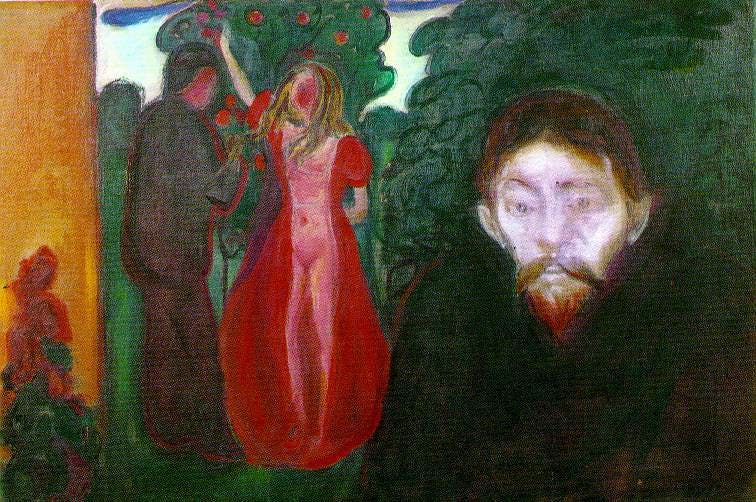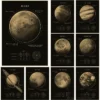When someone tells you to “eat your heart out,” they likely aren’t speaking literally. This vivid expression dates back thousands of years to ancient Greece. It conjures up the painful image of one’s heart being consumed by destructive emotions like jealousy or grief.
The earliest known use of the phrase comes from Homer’s epic poem The Iliad, written around 850 BC. But the mythological roots may stretch back even further. Understanding the history of this phrase reveals why it has endured in our language for so long.
A Mythical Heart Devoured
In The Iliad, Homer describes the Greek hero Bellerophon as “eating his heart out” in anguish after the gods kill his children. This implication of one’s heart being destroyed by grief still shapes the meaning of the expression today.

But where did Homer get this idea? Some etymologists believe the phrase originated from Greek mythology, potentially referencing an even older tale of woe that’s now lost.
Ancient cultures saw the heart as the source of deep emotion since it physically responds to feelings. When you experience excitement, fear, love, or loss, your heartbeat quickens. Before physiology explained this link, myths connected the heart with sentiments.
So for Homer, saying Bellerophon’s heart was “eaten out” vividly captured the corrosive agony of his sadness. It’s easy to imagine grief’s sharp pain taking a physical toll.
Jealousy Corrodes the Heart
After Homer, the connotation of “eat your heart out” expanded beyond grief to include other destructive emotions, especially jealousy. Wishing someone’s heart be “eaten out” from envy implies hoping they are tormented by longing for what you have.

The 16th century poet Sir Philip Sidney wrote, “…Lest Jealousy, that sour unwelcome guest, Should by his stealing in disturb the feast?” Jealousy came to be seen as an acid that eats away at contentment and peace of mind.
Telling someone to “eat their heart out” in jealousy lets them know you don’t feel bad for their coveting. If they want what you have, let the yearning consume them from within!
The Heart’s Sins
Beyond Greek myths, “eat your heart out” has Biblical roots as well. The phrase likely draws imagery from verses about consuming one’s own flesh out of envy or despair. In the Old Testament, envy is named as one of the seven deadly sins that destroys men’s souls.

By the 16th century, the Bible-inspired phrase “to eat one’s own heart” meant to suffer silently from anguish and grief. To have your heart eaten out was to be tormented by sinful envy.
So the vision of a heart being slowly devoured by jealousy has origins in both Greek mythology and the Bible. Whether driven by envy of others or despair at one’s own life, it came to symbolize how dark emotions can painfully corrode us from within.
Why the Heart?
But why is the heart the focal point for such intense feelings? Many cultures made this connection before science explained the cardiovascular system.
For one, we physically feel our heart race when experiencing emotional excitement. Without knowledge of adrenaline, this seemed like proof of the heart’s central role.
The heart also represents life itself. Grief severe enough to “eat your heart out” implies you might die from a broken heart. You’ll waste away from sadness unless the lost thing is restored, like pining lovers in myths.
Some believe ancient spiritual views of the heart as the center of emotions influenced the phrase’s development. Long before blood circulation was discovered, cultures as diverse as the Aztecs, Egyptians, and Chinese all viewed the heart as connecting us to feeling.
“Like such a blind and senseless tree
As I’ve imagined this to be,
All envious persons are:
With care and culture all may find
Some pretty flower in their own mind,
Some talent that is rare.”
~ From the poem “Envy” by Mary Lamb (1807)
The Science of Heartache
Modern science is now confirming what ancient myths portrayed metaphorically about envy eating away at the heart. Neuroimaging studies reveal that experiencing envy activates brain regions linked to physical pain sensations. The more envy reported, the more intense the pain signals become.
Researchers have also found that anticipating a rival’s downfall triggers reward activity in dopamine-rich areas. As the Japanese saying goes, “The misfortunes of others are the taste of honey.” The brain seems to interpret envious resentment and schadenfreude as part of the same needs-driven system, like hunger and thirst.
So while ancient Greeks and biblical writers described envy figuratively consuming the heart, brain scans demonstrate this is biologically accurate. The visceral feeling of envy is our mind’s way of encoding social defeat. Science continues to uncover the painful neurological roots of this malicious emotion.
Today, we understand the body’s physical reactions to emotions. But this ancient phrase remains a vivid way to convey jealousy or grief’s gnawing agony. It reminds us that, metaphorically at least, unchecked negativity can consume us from within.
“To err may be human, but to envy is undoubtedly so.”
~ Joseph Epstein
Overcoming Envy’s Corrosive Effects
While envy has always eaten away at people, today’s social media landscape exacerbates the problem. We consume curated glimpses into strangers’ lives, making envy inescapable.

Yet envy doesn’t have to consume us. Focusing on the ordinary parts of others’ lives, not their highlights, can reduce envy. Limiting social media exposure helps too. We also blunt envy by embracing our flaws, not pretending to be perfect.
Most importantly, cultivating gratitude for what we have is the best remedy. As the poet Mary Lamb wrote, “All envious persons are: With care and culture all may find, Some pretty flower in their own mind.”
The phrase “eat your heart out” conjures envy’s painful corrosion. But remembering our own gifts keeps resentful envy from devouring us from within.
So next time you tell someone to “eat their heart out”, know you’re invoking an evocative image passed down through millennia. The mythical heart endures as a powerful symbol of how our emotions can torment us when passions turn destructive. Being eaten up by heartache sounds painful for a reason!

 Additional Facts
Additional Facts
100,000
heart beats a day is about the average for an average adult.
Broken Heart Syndrome
Takotsubo cardiomyopathy, known as “Broken Heart Syndrome,” occurs when the heart muscle temporarily weakens following intense emotional or physical stress. While symptoms may resemble a heart attack, this stunned heart condition is temporary and most patients recover within two months. Even a broken heart can mend with time.
Over 50%
A recent study found over half of people felt worse after seeing their friends’ perfect social media lives. This envy led many to share private details just to get more “likes.”



